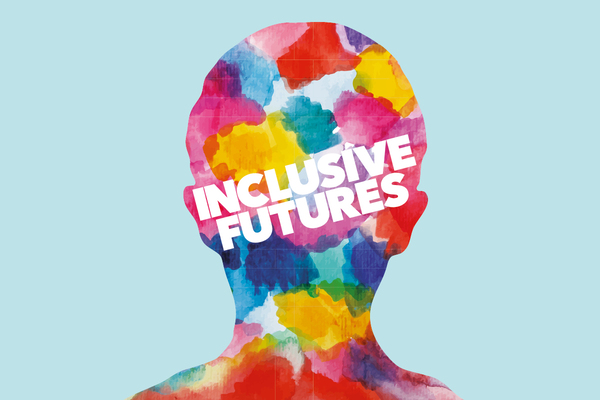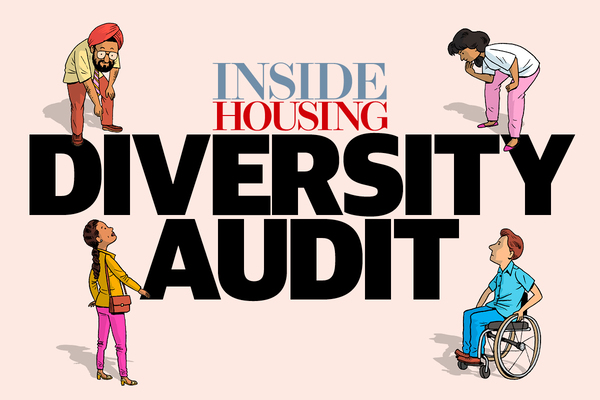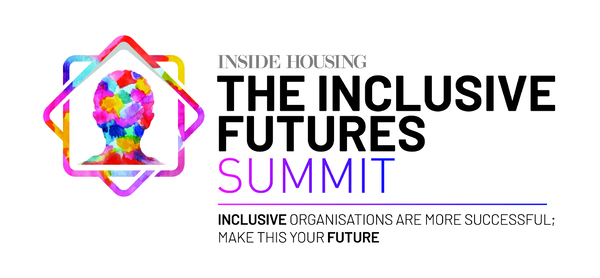You are viewing 1 of your 1 free articles
The challenge of recruiting women into traditionally ‘male roles’
Midland Heart has been finding it hard to attract women to apply for property care roles, so it is doing something about it, Baljinder Kang explains
Inside Housing’s Inclusive Futures campaign aims to promote diversity and inclusion among housing’s leadership teams
As a large employer in the Midlands region, we have a diverse workforce of around 1,600 people, which reflects the differing demographics of the communities we serve. Being inclusive has always been at the very core of our organisation; when we embrace our diversity, we attract and retain the right people to provide the best service.
Put simply, we want Midland Heart to be a place where anyone can succeed, irrespective of their background or diversity.
Diversity is one element of inclusivity; equality is another and we feel we can do more to balance gender representation in areas of our business that, for generations, have been viewed by society as almost exclusively as male or female.
For our business, this specifically relates to our teams working in property maintenance and care services. There is no prize for guessing which roles seem traditionally to be filled by men and which are typically targeted at women.
Our gender pay report published in March this year demonstrated how under-represented women are in our property care team.
Indeed, we currently have no females working in property care in spite of a growing number of women taking up what are stereotypically seen as male roles in asset maintenance and surveying.
“We can do more to balance gender representation in areas of our business that, for generations, have been viewed by society as almost exclusively as male or female.”
We began to question – are we doing enough to support women into these roles? Is there a pool of talented individuals we are failing to tap in to? Are there other barriers women need to overcome to enter this workspace?
Besides asking ourselves these questions our executive team are committed to taking action and looking at the opportunities available to us to help address this imbalance.
A major focus for us now is our partnership with Women into Construction, a national organisation connecting women with contractors and training agencies, to promote training, work placements and mentoring opportunities in the construction industry.
This new partnership will help us to tackle our immediate challenge of attracting and recruiting women to these roles, providing us with access to a talented pool of candidates who are at a variety of stages in their career as a tradesperson.
Despite having roles to fill and running four campaigns to recruit multi-trade operatives to property care over the past 12 months, we received only five female applicants from over 190 applications.
We have already taken some significant steps to change the way we target our recruitment campaigns to help make some of these traditional male roles more appealing to women by adapting the look, tone and language used.
“We received only five female applicants from over 190 applications.”
However, we hope this partnership will help us to be more targeted and ensure women considering this career path see us as an option.
We are also working with Women in Construction to adopt new channels to recruit, including setting up a work placement programme and exploring the possibility of starting our own sector-based work academy.
Work placements offer individuals a valuable opportunity to gain industry experience and to showcase their skills to prospective employers. The statistics show that approximately 50% of those who complete a placement progress into permanent employment. We are hopeful this will be the case for us.
We have worked hard to understand the story behind our data.
There is no single answer as there are many factors of why women may not apply for these kinds of roles, but we are committed to ensuring these opportunities are available to all and that any existing barriers are removed.
This presents a significant challenge for us and, indeed, the wider sector but it also presents us with a real opportunity to address some of the wider societal norms that exist and try to breakdown what is really seen as a traditionally male role.
Baljinder Kang, executive director of HR and learning, Midland Heart
The Inclusive Futures Summit
Inside Housing is launching the Inclusive Futures Summit
Our high-level summit will bring together respected people leaders and exemplars from the across sector and wider business to debate, discuss and learn how to embed diversity and inclusion in your organisations and harness the myriad benefits that this creates and to ensure that your workplace is reflective of the diverse communities you serve.
Themes being discussed include why being an inclusive organisation can help you be more successful, how to make inclusion visible in your organisation and the best approaches to encourage diversity at board level.
Discussions will also focus on how to future-proof your recruitment processes, promote inclusion through talent management, build working environments safe from prejudice and tackle unconscious bias.
The summit will take place on October 11 at the Emirates Old Trafford, Manchester.
The Inside Housing Diversity Audit: how diverse has our coverage been?
The media plays a key role in championing diverse role models, so we designed a project to measure Inside Housing’s track record.
Inclusive Futures
Inside Housing’s Inclusive Futures campaign aims to promote and celebrate diversity and inclusion.
We are pledging to publish diversity audits of our own coverage.
We are also committed to proactively promoting positive role models.
We will do this through the pages of Inside Housing. But we will also seek to support other publications and events organisations to be more inclusive.
Our Inclusive Futures Bureau will provide a database of speakers and commentators from all backgrounds, for use by all media organisations.
We are also challenging readers to take five clear steps to promote diversity, informed by the Chartered Institute of Housing’s diversity commission and the Leadership 2025 project.
INSIDE HOUSING’S PLEDGES
We will take proactive steps to promote positive role models from under-represented groups and provide information to support change.
We pledge to:
Publish diversity audits: We will audit the diversity of the commentators we feature. We will formalise this process and publish the results for future audits twice a year.
Promote role models: We will work to highlight leading lights from specific under-represented groups, starting in early 2018 with our new BME Leaders List.
Launch Inclusive Futures Bureau: We will work with the sector to compile a database of speakers, commentators and experts from under-represented groups. The bureau will be available to events organisers, media outlets and publications to support them to better represent the talent in the sector.
Take forward the Women in Housing Awards: Inside Housing has taken on these successful awards and will work to grow and develop them.
Convene Inclusive Futures Summit: Our new high-level event will support organisations to develop and implement strategies to become more diverse and inclusive.
THE INCLUSIVE FUTURES CHALLENGE
Inside Housing calls on organisations to sign up to an inclusive future by taking five steps:
Prioritise diversity and inclusion at the top: commitment and persistence from chief executives, directors and chairs in setting goals and monitoring progress.
Collect data on the diversity of your board, leadership and total workforce and publish annually with your annual report. Consider gender, ethnicity, disability, sexuality, age, and representation of tenants on the board.
Set aspirational targets for recruitment to the executive team, board and committees from under-represented groups.
Challenge recruiting staff and agencies to ensure that all shortlists include candidates from under-represented groups.
Make diversity and inclusion a core theme in your talent management strategy to ensure you support people from under-represented groups to progress their careers.
THE CASE FOR CHANGE
34%
of housing association chief executives are female
1%
of housing association executives have a disability
1.6%
of housing association board members are LGBT
Women make up 46% of the UK workforce, but Inside Housing research found that they are under-represented on housing association boards (36%), executive teams (39%) and among chief executives (34%).
Almost a fifth of working-age adults have a disability (18%), yet associations reported only 1% of executives and 4.5% of board members with a disability. Many were unable to provide details.
Nationwide, 14% of the working-age population come from a BME background, climbing to 40% in London and Birmingham. Yet our research found that 6.8% of board members identified as BME, compared with 4.5% of executives.
Statistics on representation of LGBT people in the workforce are in short supply, but official statistics suggest that 2% of the total UK population identify as lesbian, gay or bisexual, rising to 4.1% for 16 to 24-year-olds. Our survey found that 1.6% of board members and 10 executives were LGBT – but most organisations were unable to provide figures.














